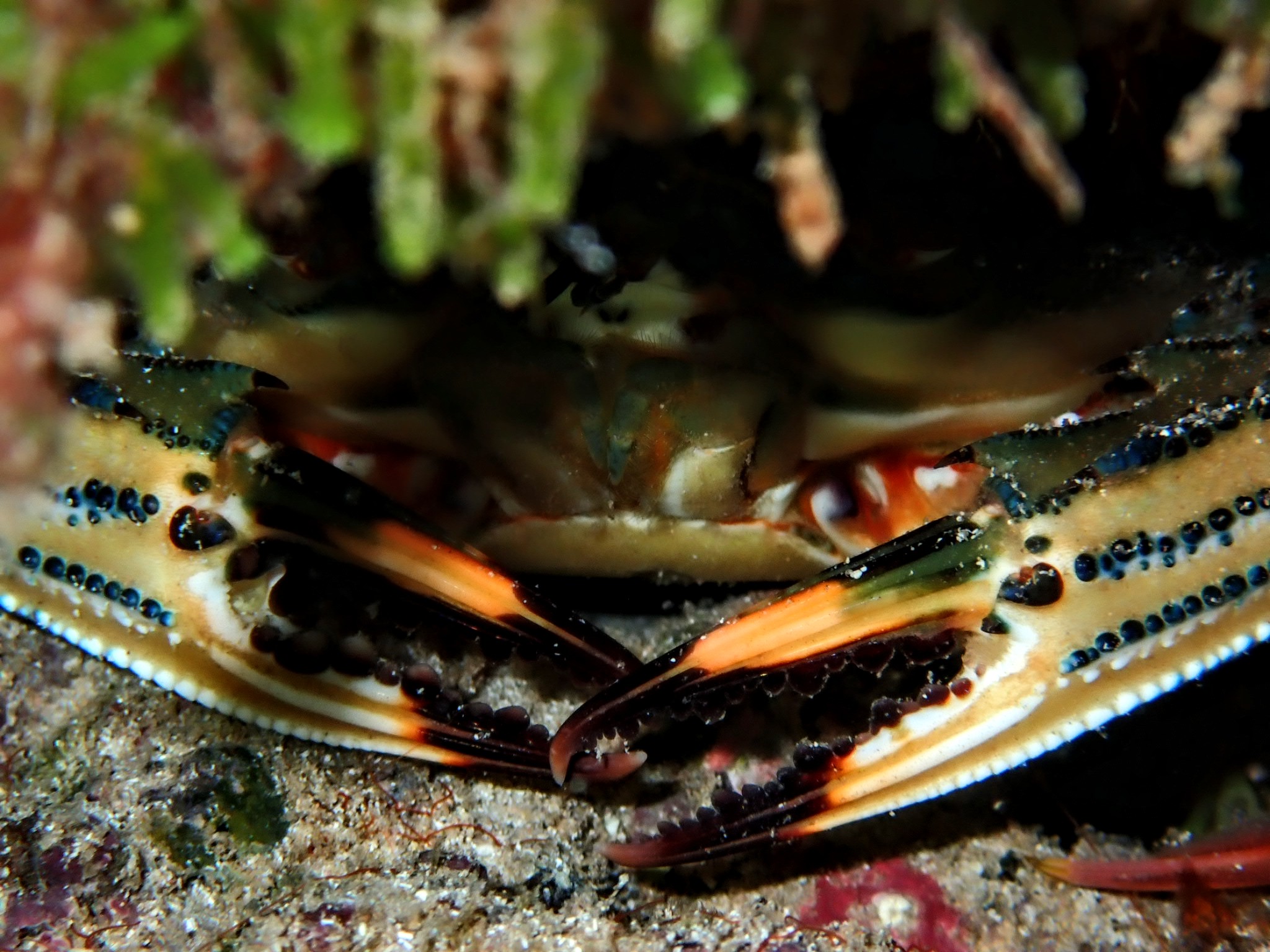THE OCEAN: THE GREATEST SOURCE OF LIFE ON OUR PLANET

The ocean, covering more than 70% of the Earth's surface, is the largest and most vital ecosystem on our planet. It is a dynamic and complex environment that sustains life, regulates climate, and supports a vast array of biodiversity. Understanding the importance of the ocean is crucial for our survival and the health of the planet.
The Ocean as a Source of Life
Biodiversity Hotspot: The ocean is home to millions of species, many of which are yet to be discovered. From the smallest plankton to the largest whales, marine life exhibits incredible diversity. Coral reefs, often referred to as the rainforests of the sea, are particularly rich in species and are crucial for maintaining marine biodiversity.
Food Supply: The ocean provides a significant portion of the world’s food. Fisheries and aquaculture are vital sources of protein for billions of people. Sustainable fishing practices are essential to maintain these resources and ensure food security for future generations.
Oxygen Production: Phytoplankton, microscopic plants in the ocean, produce more than half of the world's oxygen through photosynthesis. These tiny organisms are the foundation of the marine food web and play a critical role in maintaining atmospheric oxygen levels.
Climate Regulation: The ocean absorbs a large amount of the Earth's heat and carbon dioxide, regulating the global climate. Ocean currents distribute heat around the planet, influencing weather patterns and climate systems. The ocean also acts as a carbon sink, helping to mitigate the impact of climate change.
The Ocean's Role in the Global Ecosystem
Water Cycle: The ocean is a key component of the global water cycle. It evaporates water into the atmosphere, which later falls as precipitation, replenishing freshwater supplies on land. This cycle is essential for maintaining life on Earth.
Nutrient Cycling: Marine ecosystems play a crucial role in cycling nutrients, such as nitrogen and phosphorus, which are essential for plant growth. These nutrients support the productivity of both marine and terrestrial ecosystems.
Coastal Protection: Healthy marine ecosystems, such as mangroves, seagrass beds, and coral reefs, provide natural barriers against coastal erosion and storm surges. They protect shorelines and reduce the impact of natural disasters on coastal communities.
Challenges Facing the Ocean
Despite its importance, the ocean faces numerous threats:
Pollution: Marine pollution, including plastic waste, oil spills, and chemical runoff, has devastating effects on marine life and ecosystems. Reducing pollution is essential to protect the health of the ocean.
Overfishing: Overfishing depletes fish stocks and disrupts marine food webs. Implementing sustainable fishing practices is crucial to prevent the collapse of fisheries and maintain biodiversity.
Climate Change: Rising temperatures and ocean acidification, caused by increased carbon dioxide levels, threaten marine ecosystems. Coral bleaching, loss of sea ice, and changes in species distribution are some of the impacts of climate change on the ocean.
Habitat Destruction: Coastal development, dredging, and destructive fishing practices damage critical habitats, such as coral reefs and mangroves. Protecting and restoring these habitats is vital for the health of marine ecosystems.
The Path Forward
To ensure the health and sustainability of the ocean, collective action is needed:
Conservation Efforts: Establishing marine protected areas, restoring damaged ecosystems, and enforcing regulations to prevent overfishing and pollution are essential steps in ocean conservation.
Research and Education: Investing in marine research and promoting ocean literacy can help us better understand and protect marine ecosystems. Public awareness and education are crucial for fostering a sense of stewardship for the ocean.
Sustainable Practices: Adopting sustainable practices in industries such as fishing, tourism, and coastal development can reduce the impact on the ocean. Consumers can also make a difference by choosing sustainable seafood and reducing plastic use.
Global Cooperation: Addressing the challenges facing the ocean requires international collaboration. Policies and agreements that promote conservation and sustainable use of marine resources are vital for the global health of the ocean.
Conclusion
The ocean is the greatest source of life on our planet, providing essential resources, regulating the climate, and supporting a vast array of biodiversity. Protecting and preserving this invaluable ecosystem is critical for our survival and the health of the Earth. Through conservation efforts, sustainable practices, and global cooperation, we can ensure that the ocean continues to thrive and support life for generations to come.
The Ocean as a Source of Life
Biodiversity Hotspot: The ocean is home to millions of species, many of which are yet to be discovered. From the smallest plankton to the largest whales, marine life exhibits incredible diversity. Coral reefs, often referred to as the rainforests of the sea, are particularly rich in species and are crucial for maintaining marine biodiversity.
Food Supply: The ocean provides a significant portion of the world’s food. Fisheries and aquaculture are vital sources of protein for billions of people. Sustainable fishing practices are essential to maintain these resources and ensure food security for future generations.
Oxygen Production: Phytoplankton, microscopic plants in the ocean, produce more than half of the world's oxygen through photosynthesis. These tiny organisms are the foundation of the marine food web and play a critical role in maintaining atmospheric oxygen levels.
Climate Regulation: The ocean absorbs a large amount of the Earth's heat and carbon dioxide, regulating the global climate. Ocean currents distribute heat around the planet, influencing weather patterns and climate systems. The ocean also acts as a carbon sink, helping to mitigate the impact of climate change.
The Ocean's Role in the Global Ecosystem
Water Cycle: The ocean is a key component of the global water cycle. It evaporates water into the atmosphere, which later falls as precipitation, replenishing freshwater supplies on land. This cycle is essential for maintaining life on Earth.
Nutrient Cycling: Marine ecosystems play a crucial role in cycling nutrients, such as nitrogen and phosphorus, which are essential for plant growth. These nutrients support the productivity of both marine and terrestrial ecosystems.
Coastal Protection: Healthy marine ecosystems, such as mangroves, seagrass beds, and coral reefs, provide natural barriers against coastal erosion and storm surges. They protect shorelines and reduce the impact of natural disasters on coastal communities.
Challenges Facing the Ocean
Despite its importance, the ocean faces numerous threats:
Pollution: Marine pollution, including plastic waste, oil spills, and chemical runoff, has devastating effects on marine life and ecosystems. Reducing pollution is essential to protect the health of the ocean.
Overfishing: Overfishing depletes fish stocks and disrupts marine food webs. Implementing sustainable fishing practices is crucial to prevent the collapse of fisheries and maintain biodiversity.
Climate Change: Rising temperatures and ocean acidification, caused by increased carbon dioxide levels, threaten marine ecosystems. Coral bleaching, loss of sea ice, and changes in species distribution are some of the impacts of climate change on the ocean.
Habitat Destruction: Coastal development, dredging, and destructive fishing practices damage critical habitats, such as coral reefs and mangroves. Protecting and restoring these habitats is vital for the health of marine ecosystems.
The Path Forward
To ensure the health and sustainability of the ocean, collective action is needed:
Conservation Efforts: Establishing marine protected areas, restoring damaged ecosystems, and enforcing regulations to prevent overfishing and pollution are essential steps in ocean conservation.
Research and Education: Investing in marine research and promoting ocean literacy can help us better understand and protect marine ecosystems. Public awareness and education are crucial for fostering a sense of stewardship for the ocean.
Sustainable Practices: Adopting sustainable practices in industries such as fishing, tourism, and coastal development can reduce the impact on the ocean. Consumers can also make a difference by choosing sustainable seafood and reducing plastic use.
Global Cooperation: Addressing the challenges facing the ocean requires international collaboration. Policies and agreements that promote conservation and sustainable use of marine resources are vital for the global health of the ocean.
Conclusion
The ocean is the greatest source of life on our planet, providing essential resources, regulating the climate, and supporting a vast array of biodiversity. Protecting and preserving this invaluable ecosystem is critical for our survival and the health of the Earth. Through conservation efforts, sustainable practices, and global cooperation, we can ensure that the ocean continues to thrive and support life for generations to come.
